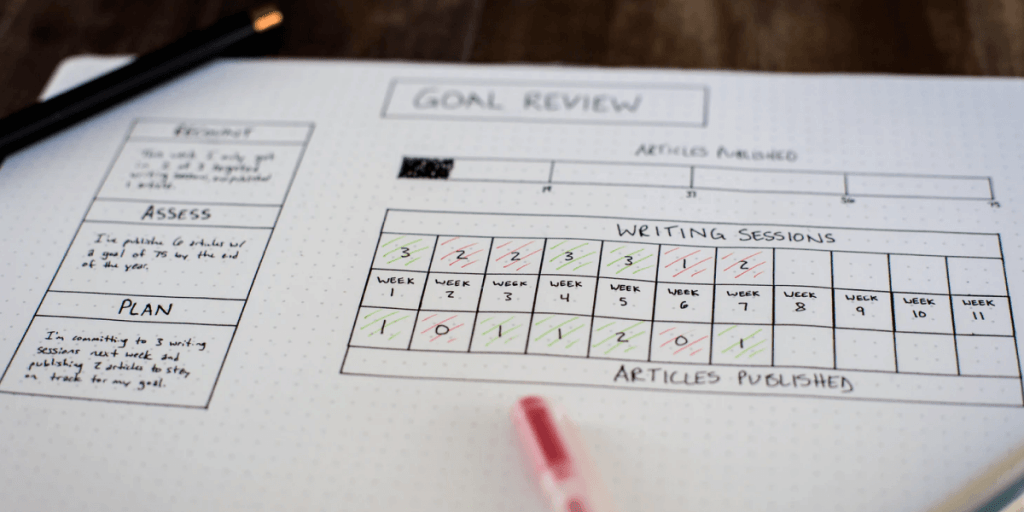Top 4 Reasons to Optimize Meta Descriptions in 2021
The power of content marketing is to improve the overall value of a website through valuable content. In the world of digital marketing, there are also hidden HTML and metadata attributes to add to the back-end of your webpage to send valuable signals to search engines and users at the same time. A significant part of these text snippets is the SEO meta description.
This article will discuss what meta descriptions represent, why they are valuable, and explore why you need to optimize them in 2021. Follow along for more in-depth knowledge.
What Is a Meta Description?

A meta description or a description tag is an HTML attribute that describes a web page’s content. Google and other search engines such as Bing, do not use meta descriptions as a direct ranking signal, but descriptions appear on the search engine results page (SERP) and directly impact the organic click-through rates.
The attribute of the description meta tag is included in the <head> section of the HTML code of a page. The search engines will display the meta description under the page title (meta title tag).
Below you can see a meta description example from our site in the SERP.

This is the HTML code sample we used.
<head> <meta name=”description”
content=”All your digital needs in one place. We offer everything from Back End Development, Front End Development, UX/UI Design, to SEO solutions and more.”></head>
Why Are Your Content’s Meta Descriptions Important?
Meta descriptions appear on the SERP next to your page title and URL. Therefore, these pieces of content can help or hurt your result’s click-through rate. Including a keyword in the body of your meta description is translated as a relevancy signal by major search engines, and it can help your search ranking. Even though it is not a significant ranking signal, when used naturally, without keyword stuffing, meta descriptions play a conclusive role. Your meta description is an essential part of a search query because it provides meaningful information to a user. Your title and URL are only one line of text, but your description is two lines of text. We strongly recommend taking advantage of this search engine optimization attribute to sell your website and reach more users.
Google and Bing do not use meta description in their ranking algorithm, but meta description can increase the click-through rate, which is a direct ranking factor. Based on the analysis made by Backlinko, pages with meta description have an average of 5.8% more clicks than pages that are missing this text snippet.
Top 4 Reasons to Optimize Meta Descriptions in 2021

Even though they are not a ranking signal, meta descriptions help you in the organic search. You have learned why they are essential, but let’s explore more in-depth the top 4 reasons to optimize meta descriptions in 2021.
Website Advertising
The description tag is a content element that can serve as an advertising copy. It draws the attention of a searcher to your website from the search engine results page. The meta description is a very visible and vital part of search marketing. We strongly recommend you create high-quality content for your descriptions. Using at least one focus keyword based on the user’s search intent can improve the click-through rate for a specific webpage. You must know that Google and other search engines will bold the keywords in the description matching the used search term. The online searcher can see that your webpage is relevant and fits his or her user intent. This bold text will draw the user’s eye to your website. Therefore, meta description acts as a mini-website advertising tool.
Improve Click-Through Rate

Thinking of your meta descriptions as an ad is a great way to improve your SEO strategy. This little text snippet will tell users why they should choose your webpage and ignore the other nine pages. The more attention your SEO description grabs, the more clicks you get, and over time your SEO rankings will grow.
As we mentioned before, even if Google does not see meta descriptions as a ranking factor, it still is relevant to the user experience. We recommend treating your meta description as an important part of your content strategy, including a target keyword and providing valuable information about your page to your potential visitors.
Improve User Experience

The URL structure, title, and most importantly, the description can affect your on-page SEO and influence user behaviour. Google and users want to know what’s on your website. Because user behaviour is influenced by the user experience, meta descriptions matter for SEO and have a great potential in optimizing user experience while your target audience is still off-site. Your meta description should indicate what type of needs it serves: educating, instructing, or showing what you can do. As Neil Patel said, “meta descriptions are the frontline of that effort for organic search.” The meta description is the first impression. Users are the judges of relevancy when selecting a particular search result. Google sees user experience as the best metric when finding useful content, and meta description is the one that provides the first answers. We strongly recommend you start writing good meta descriptions that appeal to users and make them click on your website. Most importantly, your content should match your meta description. Otherwise, you will deliver a poor user experience.
Increase Search Rankings
According to HubSpot, 75% of users don’t go past the first page in SERP. This is why it is important to rank high in search engines. In 2021 you should focus on every piece of content on your website. Google is releasing every year around three core updates that greatly impact search and ranking algorithms. Therefore, if your website has poor quality and duplicate content, the chances of being hit by the update and lowering your search rankings are high.
Our advice is to focus on increasing search rankings organically through relevant content. Google focuses on high-quality page content that showcases E.A.T (Expertise, Authoritativeness, Trustworthiness). Implementing this principle into your content writing habits, you will show Google that you know what you are writing about. The days of keyword stuffing are gone. From an SEO perspective, if you want to have a great website ranking in 2021, your focus should be on creating authoritative content focused on evergreen keywords. Do not write for Google bots but for users.
Keep in mind that meta descriptions can greatly improve the click-through rate and the user experience. The most crucial factor for Google is user experience. Websites that provide quality content and a solution for user’s questions will boost their SEO ranking.
Meta Description Best Practices

To boost the effectiveness of your meta descriptions, we have some tips for you on how to write your best possible meta description that will get more clicks and improve your results. Here is a best practice SEO checklist to follow:
- Keep it under 160 characters. The “perfect” length of a description should be around 150 characters. When the limit is exceeded, Google will cut off your sentence, and your users will not grasp the purpose of your description. To be safe, aim for 150 characters.
- Include your focus keyword. We suggest using a long-tail keyword that better describes your page. If you stuff your description with keywords, the sentence won’t make sense, and Google won’t like it.
- Your meta description should 100% match the content of your page since the description summarizes the page’s content. The best approach is to carefully read your page’s content and make a one or two-sentence summary that better represents the body of content.
- When you can describe your page content and still can include a call-to-action, you should do it, especially if you run a promotion with “free shipping” or “free demo”, etc.
- If your page’s content is based on technical specification, you should include it in your meta description. If users are marketing a review of a particular product and your page does not cover this, your audience will be disappointed because the description is misleading.
- Avoid duplicate title tags and meta descriptions. As your pages are unique, your descriptions should be unique as well. Google does not appreciate duplicate content. We suggest you write a meta description for each page and do not copy someone else’s descriptions.
- Catch the reader’s attention and try to make your meta description interesting. When your description is engaging, the searcher will want to learn more about what you have to offer.
Our Advice on How To Optimize Your Meta Descriptions in 2021

The purpose of writing optimized meta descriptions is to increase the visibility of your website. A meta description is an indirect benefit to your search rankings. The better your meta description is written, the more you move up in the SERP. Along with your description in search, your SEO title tags should be optimized as well. You should know that there is a small chance that Google won’t display the meta description that you have written, but, at the same time, there is a chance it will be displayed. We strongly advise you to take the time and effort to write it.
- Pay attention to character limits. Between 140-160 characters are the best practice limit because Google measures meta descriptions by pixel size, not characters. At 920 pixels, Google will cut off your description. SEO professionals say that staying below 155 characters works well and is much easier to measure. We recommend a couple of SEO tools for measuring and counting the characters in your meta descriptions and title tag: WordPress SEO plugin Yoast and Portent’s SERP Preview Tool.
- Optimize your meta descriptions for mobile search. We recommend using a 120 character limit or 680 pixels for mobile devices.
- Let yourself be inspired by Google Ads when writing a benefit-oriented description. As we mentioned before, your meta description is like an advertisement for your website, so why not write it like one?
- Your meta description is valuable content because it is an invitation to your website. Therefore, it should be written using active voice. Think of your user’s needs, motivation to visit your website and make your description actionable. Users should know exactly what they get when they click on your link.
- A common mistake is to use quotation marks in a meta description. Google cuts off the description at the quotation mark when it appears on the results page. We recommend removing all the characters that are not alphanumeric and any double quote from your meta description.
- If you have a solution to a specific search query, we advise you to start your meta description with a question. This way, your users will know that they will find the solution for their problem by clicking on your website’s link.
- Study your competition. Look at their paid ads, not at their organic content. The reason behind this strategy is that your competitors are paying for the ad, and the content is optimized to maximize the click-through rate.
- Meta descriptions are important for social sharing. Optimize your blog post or page by adding a specific meta description. Social networks such as Facebook or Twitter use the meta description tag as the description that appears when the page is shared. We recommend using a different tag for social sharing, the Open Graph protocol (also known as OG data). This way you can be more creative with the metadata shared on social platforms and increase the clickthrough rate. If you don’t add a meta description to the shared post, the platform will put as a description the first text they identify on your page. Sometimes, it can disrupt the user experience, especially for people that find your content through social sharing.
We stand by the fact that optimizing meta descriptions and not letting search engines pick a description for a specific web page is a wise move. The first SEO golden rule is not to abuse keywords. Therefore, if one of your pages targets one and three heavily searched keywords or long-tail keywords, it is better to write your own meta description and target the searcher intent, including those words.
Content people should know that in some instances, it is better to let the engines populate the meta description field themselves. If your page targets high-volume keywords (more than three), sometimes, it is better to let the search engine pull the meta description from your page content. The reason behind it is that major search engines will display the keywords and the phrases the user is searching for. If you write in the page’s code a meta description, in this case, the attention of searcher might be drawn away from your website.
If you are a business owner and you want to step up your digital marketing strategies, boost your SEO, and increase sales, we are here to help you. Contact us today and let’s start creating the foundation of your customized approach to optimizing your website for the best results.
Frequently Asked Questions
We cannot tell precisely when it happens, but it occurs when Google finds a text snippet from your page that better matches the user’s query.
Ignoring your meta descriptions happens very rarely. We recommend writing them to avoid any disruption in user experience and ensure that search engines are not displaying random text snippets found on our page.
The minimum length of a meta description is 70 characters.
We strongly recommend focusing only on your target keyword. If you want, you can include a maximum of 2 secondary keywords, but no more than that.